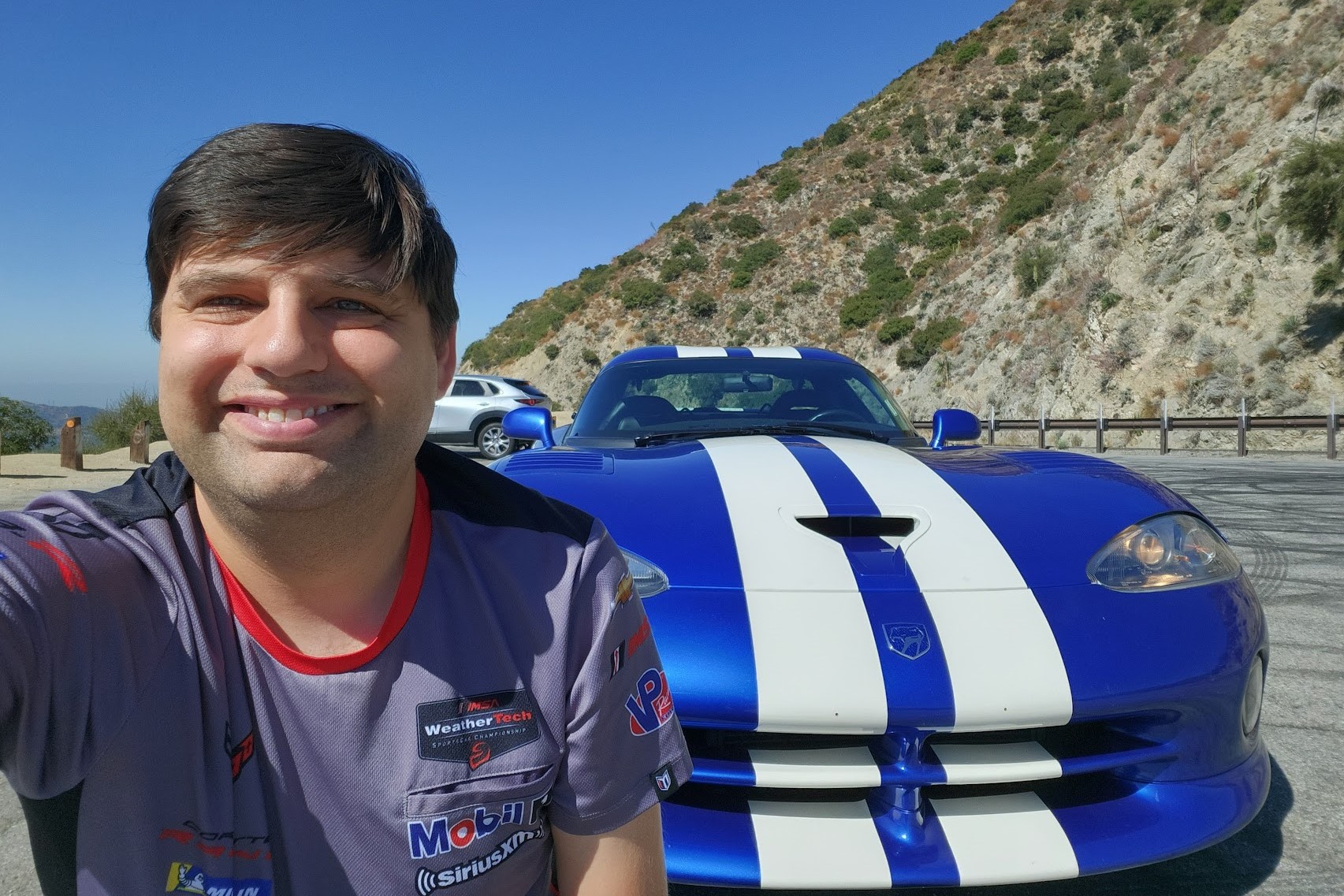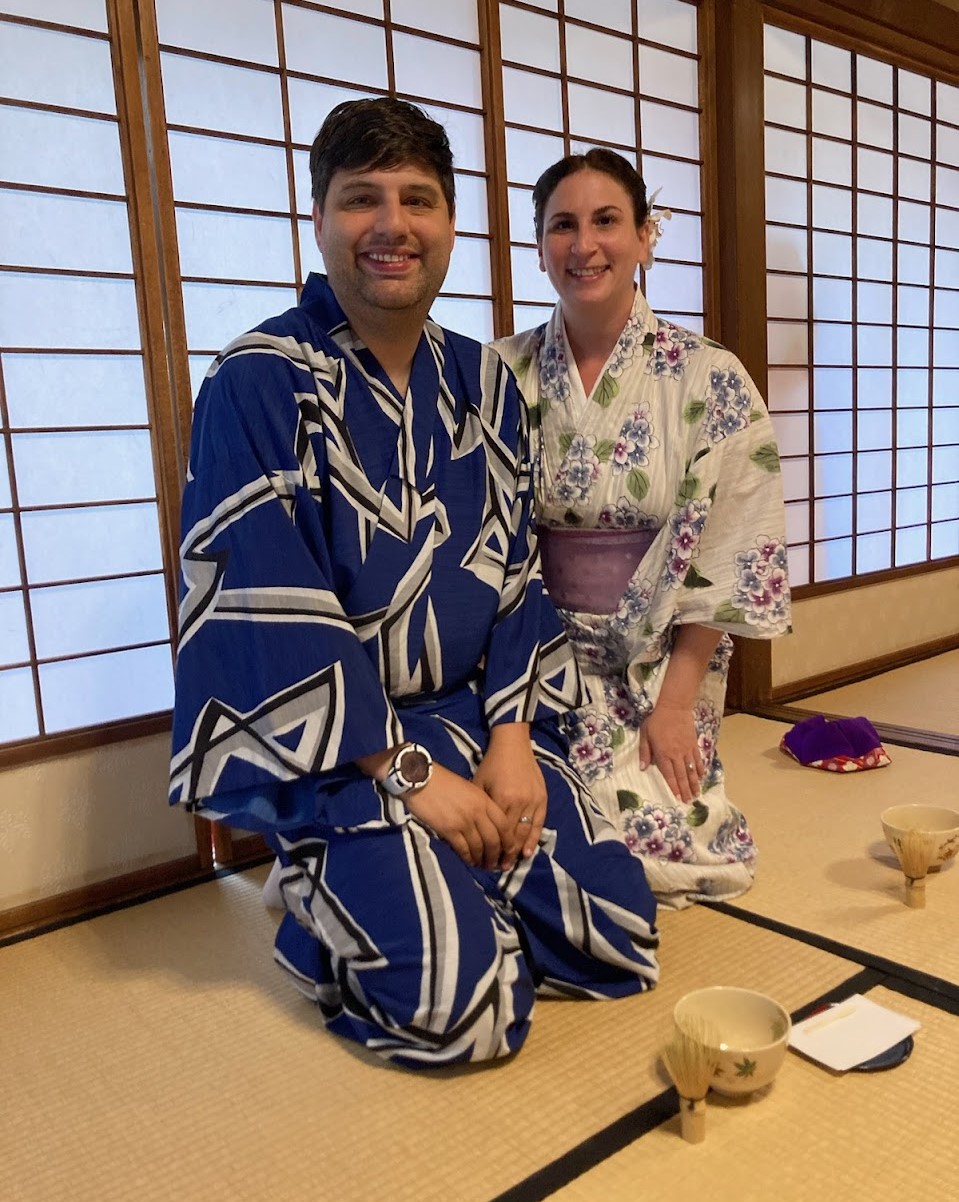Los Angeles attorney proves to be a real Renaissance man
Articles
Spotlight
View more from News & Articles or Primerus Weekly
By Brian Cox
Attorney Ira Steinberg has a hyperactive mind. His curiosity is boundless and diverse.
His interests and pursuits range from playing chess competitively, to running marathons, to writing book recommendations on his LinkedIn page (one of his latest posts urges others to check out "Fermat's Enigma" by Simon Singh).
He used to race motorcycles and now collects cars (he currently has a C8 Corvette and a ‘97 Viper GTS in the blue-and-white Shelby paint scheme). He is a self-confessed political junkie and plays bass guitar in the law firm’s house band. He recently started teaching himself Japanese – because “it seemed cool,” he says.
He is a voracious reader and in addition to consuming fiction and the classics, he plunges into books on science, philosophy, politics, and history. He aims to read 50 books a year. His conversation is peppered with quotes from Socrates, Epictetus, Mahatma Ghandi, and Hungarian proverbs.
His first love, however, is flying. A licensed single-engine and glider pilot, certified for aerobatics or stunt flying, Steinberg’s first ambition was to be a test pilot and an astronaut. He’s been flying since he was 12.
“I got the bug,” says Steinberg, a partner at Greenberg Glusker in Los Angeles. “I knew flying was something I wanted to do. It was the coolest thing ever. I don’t know what combination of genes and psychology makes one fall in love with aviation, but whatever it is, I have it.”
Though born in New York, Steinberg lived in Houston for three years while he attended high school. His uncle, Bob Wolin, is also a lawyer and pilot and the pair flew together regularly. Steinberg joined the Civil Air Patrol’s cadet program.
His three years in Houston were formative.
“Coming from Long Island, Texas was very different,” he says. “The idea that they expected you to be polite at all times was quite shocking to a New Yorker.”
Steinberg says he met people from all sorts of different ethnic, socio-economic, and educational backgrounds through the Civil Air Patrol that he would never have met otherwise.

“It gave me a gift of a little bit of humility about my own position,” he reflects. “You learn to listen more and be less judgmental. It’s easy to demonize people based on their views, but you learn to see them as whole people, and where they come from.”
Steinberg maintains that his training as a pilot is the best preparation he’s ever had for being a litigator.
“When you ‘solo’ in an airplane for the first time, when you’ve taken off and are in the air, you realize that you are going to land this airplane or die,” he explains. “No one’s going to help you one way or the other. It’s the same thing when you’re standing up at the podium as a junior associate. You’re on your own. You have no alternative but to make it work. That internal reaction some people have to melt into a puddle, to freeze, that is completely eradicated because you have learned that that is not an acceptable reaction to a high stress situation.”
Since he was a young teen, Steinberg’s plan had always been to join the Air Force and get into test pilot school. Toward that end, in his junior year of high school, he secured a nomination to attend the United States Air Force Academy. Shortly after, he suffered an inflammation of the retina that proved to be a disqualifying condition and his dream collapsed. A career as an Air Force pilot was suddenly not an option.
The abrupt sense of dislocation that he felt at the time was intense, Steinberg says, and he had to redefine a core component of his identity.
“When you’ve been flying since you were 12, that’s kind of who you are,” he says. “People need identity when they’re an adolescent as an anchor when they’re most trying to figure out who they are. And that was important for me.”
Rather than wallowing in the unexpected change in life plans, the young Steinberg chose to look at the experience as an “opportunity of liberation.”
Steinberg grew up around lawyers. His father, Scott Steinberg, is a bankruptcy lawyer. His uncle Bob Wolin, the pilot, was a partner at Baker Hostetler in Houston and his uncle John Wolin is an in-house health care lawyer in San Francisco.
“My dad’s security word for the alarm system at home was ‘justice,’” says Steinberg. “Fairness, justice, and the rule of law were always important values to him, and we learned them as sacred principles, just like the Golden Rule.”
Nonetheless, Steinberg resisted the idea of becoming a lawyer for a while longer. He first considered being an electrical engineer his freshman year at the University of Connecticut (UConn). At one point, though, Steinberg asked himself what really interested him, what fascinated him.
“The answer was the judicial system,” he says.
He switched his major to political science and went on to study congressional leadership and the interface between politics and the judicial system.
“I love politics. My whole family loves politics. It wasn’t until the end of college when I had to concede to myself that I might actually be good at law, and I should try it,” jokes Steinberg.
After graduating from UConn, Steinberg took what he calls “a tour of duty” in politics before heading off to law school. He had the opportunity to work in the district office of California Congresswoman Jane Harman, who proved to be a significant role model and mentor for Steinberg. Harman was a fiscally moderate, socially liberal, spending-conscious, pro-choice candidate. He admired her for her commitment to the idea that politics and government could be made better if elected officials studied an issue, learned what the best course of action was, and executed it.

“She got a lot of grief for being moderate in a very liberal district,” says Steinberg, who was a staff assistant for Harman for two years. “No matter what side she was buffeted from, she never let it disturb her commitment to looking at what the facts were, what the best policy was, and trying to persuade people about what the best decision was and doing it. She wasn’t a weathervane at all, nor was she a contrarian.”
He was inspired by Harman’s courage to discuss, with sometimes hostile people, issues she disagreed with them on and her effort to bring them over to her way of thinking, which was not always easy.
“I learned that politics is a lot of fun to be involved with but it’s a very difficult career,” says Steinberg. “It dissuaded me from running for office even though I had wanted to for a long time. The degree to which public officials lose their sense of privacy, I hadn’t fully internalized until I saw it up close. Whatever personal issues you have become news. That loss of privacy is very grave.”
Having scratched his itch for politics, Steinberg enrolled in law school at the University of California, Los Angeles with the intent of becoming a litigator. When he graduated in 2010 in the midst of the Great Recession, the job market was in freefall and, despite graduating in the top 10 in his class, the openings he expected to find in Big Law weren’t available.
He took the opportunity to reassess what he really wanted to do. Did he honestly want to work in a large, multi-national law firm that demanded in excess of 2,000 billable hours? The answer Steinberg landed on was “no.” He was looking for a middle ground.
“You could easily go with the default option and be paid a lot of money to be unhappy,” he says. “I knew I was going to work hard, but I wanted to have some life in addition to work.”
He joined a mid-size law firm that had established a strong reputation for high-end insurance work and as one of the pre-eminent liability firms in the country. After four years working in insurance coverage litigation, Steinberg decided he wanted a more varied case load that would better engage his “hyperactive” mind.
Which is what he found at Greenberg Glusker when he joined the 65-year-old firm in 2014. The mid-size, full-service law firm allowed him to develop a practice that is diverse and wide-ranging. Now a partner, Steinberg works hand-in-hand with the corporate and real estate departments and handles much of the civil litigation for the firm’s bankruptcy department. Most of the firm’s litigation matters are handled with two litigators to a case, but Steinberg is often paired with a non-litigator.
“My favorite part of this job is that I have a very broad and unique range of cases,” he says. “They’re all about problem solving and dispute resolution.”
Currently, the largest focus of his practice is on consumer claims, technology, e-commerce, and real estate. For a while, he was doing a lot of business divorce cases, but he has lately seen a real uptick in people suing the owners of websites, in particular fashion, food and beverage, and e-commerce brands over their data practices. Cases concerning data privacy violations, accessibility issues, false advertising, violations of the Telephone Consumer Protection Act, and text-email practices have become a hot area, he says.
“Because the technology is changing so much, it’s really allowed me to get in front of an evolving area and develop a unique expertise,” he says. “There are not a lot of firms that are defending the high-level privacy claims. And that has really given me an opportunity in an interesting area.”
By focusing on e-commerce and technology, Steinberg says he has been able to market his practice in a geographically diverse way. Every company has a website, after all, and those websites are likely to attract litigation at some point in time.
Steinberg says he has often found humor to be an effective tool when dealing with complex, stressful situations and he tries to bring a “sunny disposition” and a positive attitude to each case.
“Clients come to me often with very difficult situations, and they are not in the mood to laugh,” he says. “But one thing I always try to leave them with is ‘this too shall pass.’ We’re going to get you and your business through this as best as possible. My goal is not to get you in the courtroom. It’s to get your business growing and get you out of the courtroom.”
Steinberg and his wife, Hannah, are approaching their one-year anniversary in September. The couple enjoy food exploration, hiking, and traveling. They spent three weeks in Japan for their honeymoon. Hannah conducts pharmacological research at UCLA.
Flying, of course, remains a life-long passion for Steinberg, an opportunity to rise up into the sky and leave the concerns of the world below.
“To me, flying is a form of meditation,” he says. “You have to be 100 percent focused on what you’re doing or you will get yourself killed. Doesn’t matter what’s going on with your job, with your significant other, or at home. Whatever it is, none of it enters your mind. You are solely in the present because it requires your absolute concentration.”
